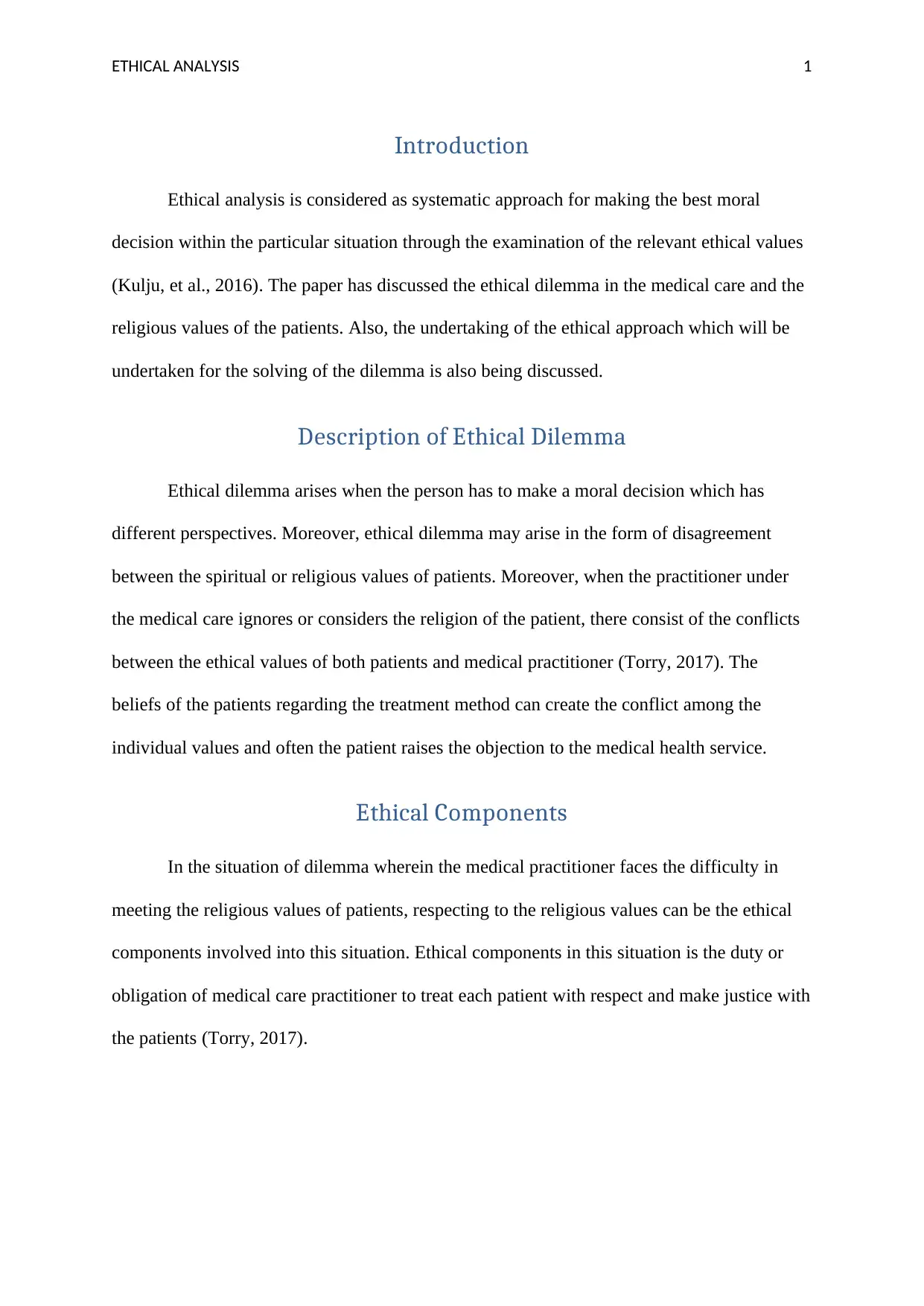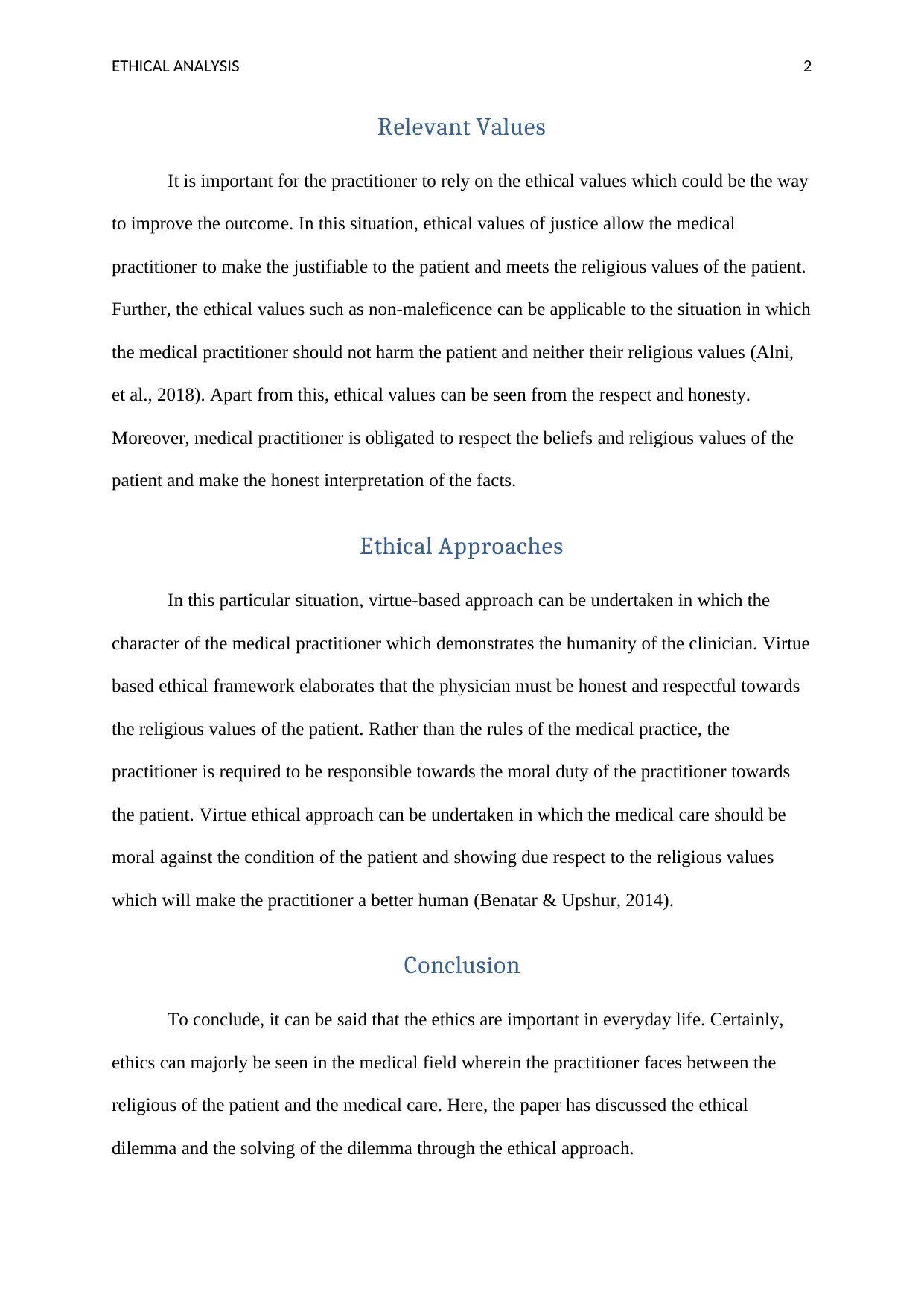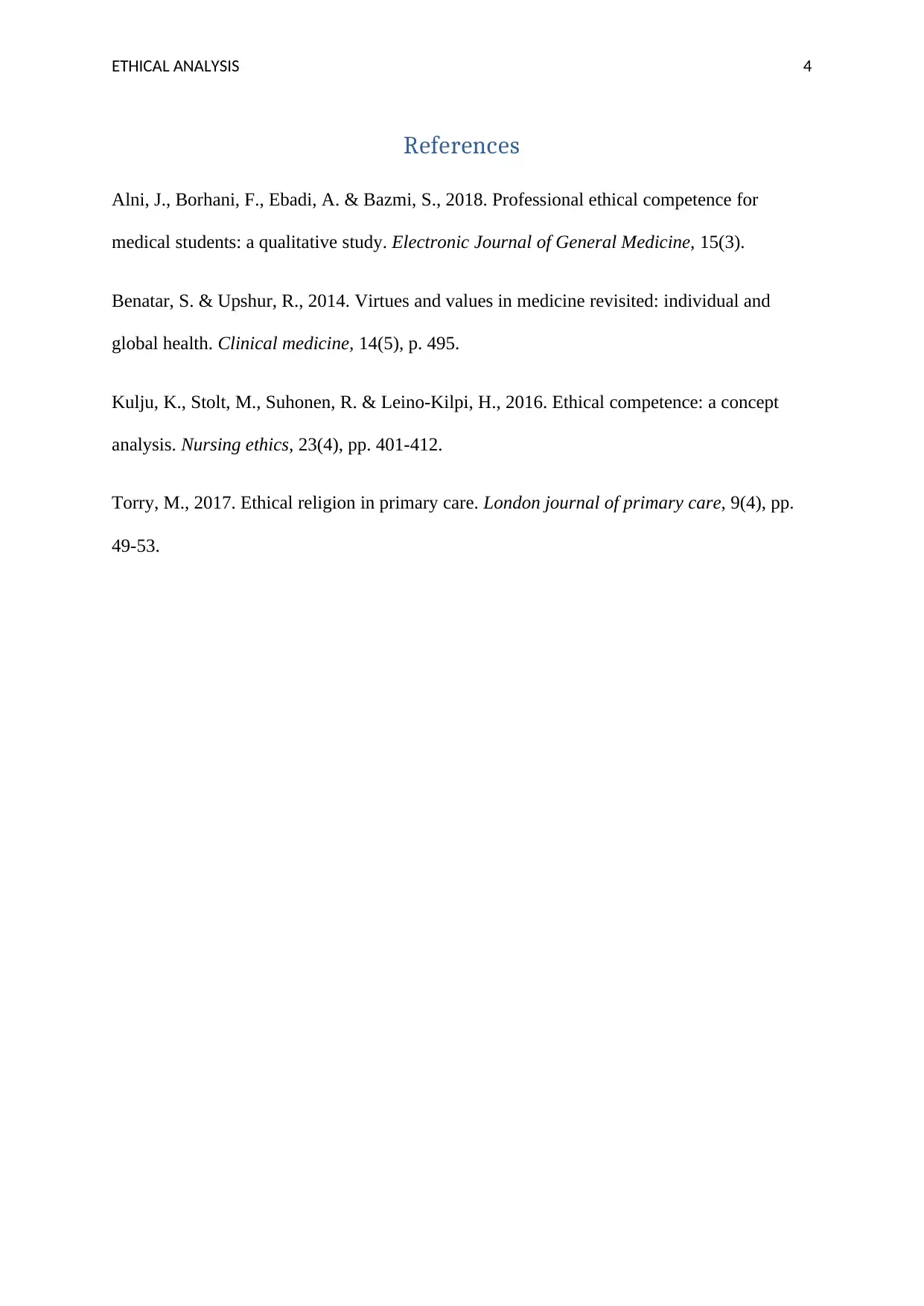Ethical Analysis of Medical Care and Patient's Religion
VerifiedAdded on 2022/08/12
|5
|731
|18
Essay
AI Summary
This essay provides an ethical analysis of dilemmas in medical care, focusing on the intersection of medical practices and patients' religious values. It begins with an introduction to ethical analysis and defines the ethical dilemma that arises when a patient's religious beliefs conflict with medical treatments. The essay explores relevant ethical components such as respecting religious values and ensuring justice, along with ethical values like non-maleficence and honesty. It proposes a virtue-based approach, emphasizing the importance of a medical practitioner's character in showing humanity and respect towards patients' beliefs. The essay concludes by reiterating the significance of ethics in healthcare and the importance of addressing such dilemmas through ethical frameworks. The paper references several sources to support its arguments and provides a comprehensive overview of the topic for students studying healthcare ethics.
1 out of 5












![[object Object]](/_next/static/media/star-bottom.7253800d.svg)